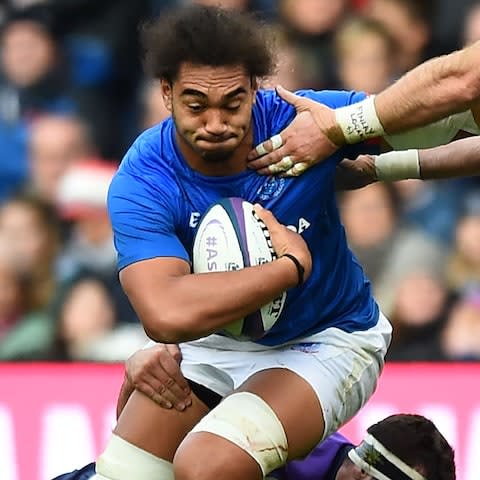New Zealand deploys ‘rugby diplomacy’ amid scrum with China over Pacific islands
New Zealand is deploying 'rugby diplomacy' in the southern Pacific with plans to use the sport to unlock development in the region and ward off growing Chinese influence.
Wellington is seeking to establish a joint team from Fiji, Samoa and Tonga that would join the Super Rugby club competition, which is contested by 15 teams from southern hemisphere nations and Japan.
The involvement of a new Pacific islands team - called Pacific Force - is being seen as a potential catalyst for development in the region at a time when China is seeking to gain a foothold through massive investment.
"Part of the plan is that rugby can be a diplomatic force to counter China's influence in the Pacific," said New Zealand media outlet Newshub, who first reported the plan.
"The idea is that rugby will help keep hearts and minds away from China, which is saturating the region with money to obtain influence."
New Zealand Foreign Minister Winston Peters earlier this year expressed "strategic anxiety" over the Pacific.
Beijing is being seen as using its economic muscle to gain influence in South Pacific countries.
Australia's Lowy Institute estimates China provided US$1.78 billion in aid, including concessional loans, to Pacific nations between 2006-16.

China has built a presidential palace and government buildings in East Timor and invested heavily in Vanuatu, a tiny island 1,200 miles north-east from Brisbane where reports last month suggested Beijing was eyeing a military base.
A New Zealand Ministry of Foreign Affairs and Trade spokeswoman said officials had commissioned an NZ$80,000 (£41,000) report into a Pacific Island Super Rugby franchise.
The spokeswoman said: "The establishment of a regional fully professional rugby team in the Pacific Islands has the potential to deliver economic and social benefits to individual players, their families and communities, Pacific Island national rugby unions and teams, and to Pacific Island economies."
Fiji, Samoa and Tonga are long-established rugby nations, but players often opt to play for foreign teams at an early stage in their careers.
A strong home-based team would help keep star players within the islands, and boost the development of the sport and wider investment.
Super Rugby officials are currently exploring plans to restructure the competition from 2021 to 2030.
There is speculation that South African teams might opt to join European rugby sides in alternative competitions.
